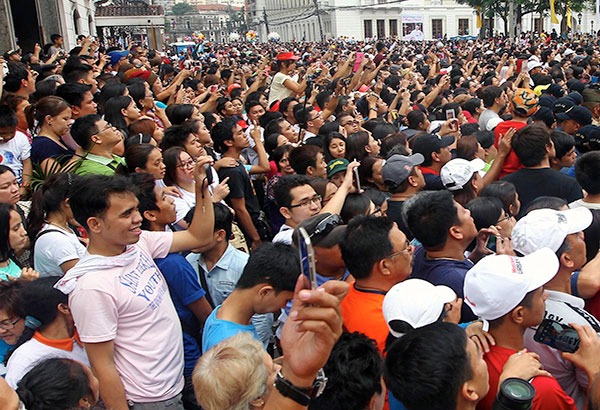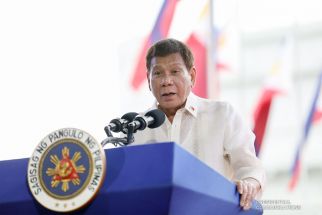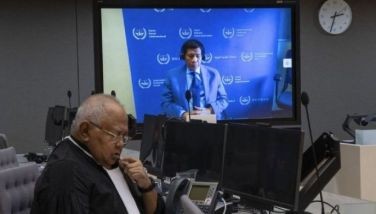Online Filipinos among most ignorant on key issues, survey says

Online Filipinos have the most inaccurate picture of key issues affecting the world and their country, according to a survey. File
MANILA, Philippines — Filipinos are some of the most mistaken online individuals on key global issues and features of their country, the 2017 Perils of Perception survey by Ipsos showed, highlighting the gap between reality and perception among a nation’s citizens.
According to the Perils of Perception 2017, the Philippines ranked the third most inaccurate among the 38 countries surveyed in their perceptions of issues on subjects that ranged from murder rates, terrorist deaths, teenage pregnancy, diabetes and how healthy people felt.
The Philippines is behind only South Africa and Brazil in this dubious honor, according to Ipsos, while Sweden, Norway and Denmark had the most accurate perception.
“On many subjects – murder rates, terrorist deaths, teenage pregnancy, diabetes and how healthy people feel – things are NOT as bad as they seem,” Ipsos said.
READ: Social media being used to ruin democracies including Philippines
Confident but mistaken
Despite being among the most ignorant, respondents from the Philippines, India and Peru were among the most confident in their answers, the study said. Thirty-three percent from the Philippines said that they were confident in all of their answers despite being third in having the most wrong answers, it said.
“In contrast Norway, Germany and Sweden come out among the most accurate in the Index, but are among the least confident in their answers,” the Ipsos survey found.
The 38-country survey was conducted via the Ipsos Online Panel System while online or face-to-face methodologies were employed in a handful of nations.
In the Philippines, Ipsos said, 500 individuals aged 16-64 were included in the survey. In total, more than 29,000 interviews were conducted in the countries involved from Sept. 28 to Oct. 19, 2017.
READ: YearEnder: When fake news becomes legit
Inaccurate estimates
In specific issues, 49 percent of Filipinos thought that there were more deaths caused by terrorists after the September 11 terror attacks from 2002 to 2016 than the 15-year period (1985-2000) before it. The reality, however, was that there were fewer deaths, from 4,322 (1985-2000) to 3,468 (2002-2016).
Filipinos also overestimated the number of foreign-born individuals in their prison cells, according to the survey, with respondents saying 17 percent of incarcerated individuals came from other countries when in fact only 0.4 percent did.
In terms of the rate of teenage births, respondents in the Philippines thought that 40 percent of women aged between 15 to 19 gave birth to babies when in reality it was only 6.3 percent, overestimating the figure by 34 percent.
Four in 10 Filipinos didn’t believe that some vaccines caused autism in healthy children. However, despite the claim being widely discredited, more than six in 10 Filipinos were either unsure of or believed the link.
READ: Garin: Some sectors using vaccinated kids to sow panic
The Philippines was also the country with the highest number of overestimation of the number of diabetic individuals out of every 100 people aged between 20-79, with the average guess pegged at 45 when in reality there were only seven, a difference of 38 percent.
The survey also revealed that only two percent of the global public would rank Filipinos as among the top three booziest in the world. One in four Filipinos meanwhile thought the Philippines belonged to the top three consumers of liquor in the world even if it was only the 16th.
Respondents from the Philippines also overestimated by 16 percent the proportion of deaths by suicide among young women, with their average guess at 20 percent when in fact it was only at 3.5 percent.
Filipinos also tended to overestimate by 17 percent the proportion of deaths by suicide among young men, with average guess at 22 percent when in reality it was only at 4.3 percent.
In terms of the number of people who owned a smartphone per 100 individuals, the average guess among Filipino respondents was 86 when actually it was only at 23, resulting in a 63-point difference.
The survey said that only 38 per 100 Filipinos had Facebook, but respondents overestimated the number by 49 percent, with average guess at 87 out of 100 people.
Participants from the Philippines were also the ones who estimated the most the number of Filipinos who owned vehicles per 100 individuals, with average guess at 61 per 100 when in fact it was only eight.
Despite being predominantly a Catholic country, the Philippines still had some of the highest underestimation of the number of people who believed in heaven, hell and God, with respondents giving answers that were on average at least 11 points lower than actual figures.
READ: Watchdog: Social media influencers paid to back Duterte
- Latest
- Trending


























